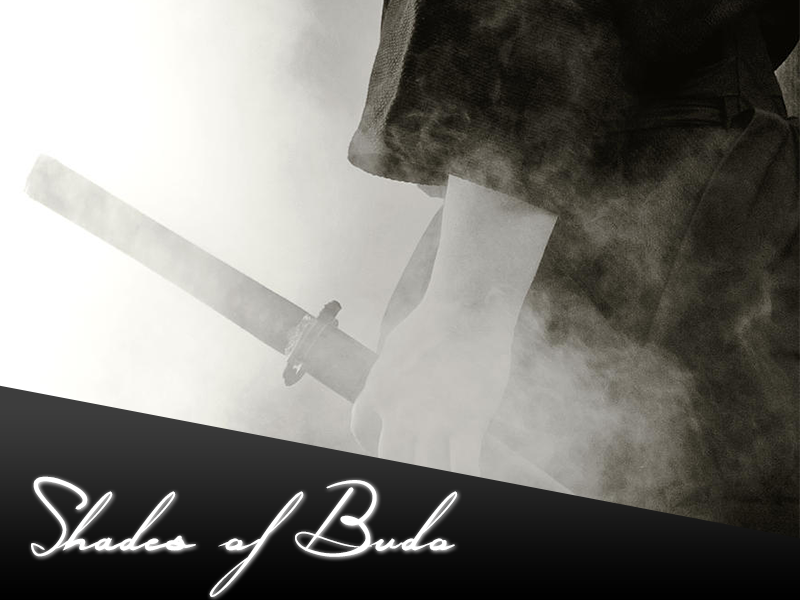
Why choosing martial arts?
05/07/2017“It is not enough for Caesar’s wife to be honest, she must appear to be honest too,” Julius Caesar said once, when his wife was accused of infidelity.
Starting with this phrase, I would like to reverse it, playing a bit with the words: “It is not enough for Caesar’s wife to appear honest, she must be honest too.” Under normal circumstances, such thing should apply across a wide range of activities. In Greece, however, there is unfortunately a major problem associated with two important aspects of how professionally we deal with the subject we are dealing with:
Firstly, in Greece people are what they say they are!
Then, without them producing the slightest thing, everyone thinks that they are entitled to have an opinion on everything, criticizing everyone else. To tell the truth, although the above have bothered me morally, if they were related exclusively to the field of commerce, I might even turn a blind eye (though I would not agree with that either) given that almost everything is allowed in commerce, with the excuse of competition.
In our field, the martial arts field, we all “agree” that we are moral, straight-forward and completely honest… It is also common to read or listen to conversations about how friendly everyone is with one another or at least some people claim so in order to set a nice commercial image. In the end, however, things are different. When it comes to personal exposure and personal interest, all of the above turn into small details among the former prominent declarations of morality, unity and professional solidarity.
When someone has power and influence, which can be translated in many ways (and trust me it is not only a Greek privilege, I have witnessed a couple of incidents abroad as well) and they hold a key position of a federation, when they know someone within the town council or they own a blog, a publication or anything else one can think of, then they tend to use the power that their position provides for their own gain. Said fact, to some extent, is quite reasonable. The problem arises when one begins to use their influence to cut someone off, hurt them morally or professionally, or generally harm someone in any way they think that will personally benefit them.
I imagine that by reading the above, one could experience a wide range of mixed feelings: to feel uncomfortable, to feel offended or even angry toward these claims. However, unfortunately, we all know that these things happen regardless of the field we belong to … As for Aikido, it is worth noting that we are lucky to have no competitions so we do not have to see our athletes lose or be excluded from the competition due to lack of transparent procedures.
Why should all this happen? One of the reasons I mentioned before is that you do not need to have worked for something in order to be someone and have an opinion on everything in Greece! Therefore, decades of training, constant educational travels abroad over the past decade in order to attend seminars and to keep up with the developments of the art, or visiting Japan, the country where the art one practices was born, and the calluses in the hands from practising the suburi with the bokken are not deemed necessary … Of course, as one can understand these are details for anyone having acquaintances, or thinking they are great only because someone told them to. To be honest, I do not particularly care, because deep inside we all know who we are and we are evaluated through the outcome of our actions.
So, for example, I cannot claim that my students are good, boosting their ego, but then when attending a seminar they are in no position to participate because “we don’t do the techniques like that!” (something that I heard with my own ears from a 3rd dan in a seminar when asked to start first in a group practice) or to perform a kotegaeshi and simply want the partner to take the ukemi because “you have to be a good uke!” (probably because the one who says that does not know what henka waza is). Similarly, another example: when traveling abroad with students of my dojo for a seminar or going to another school for a joint training, they will inevitably stand across people they might have never seen before. Imagine them not being able to stand up against students of the same level, regardless of the Aikido style they practise. What should I say to my students? That those people practise a different kind of aikido compared to us? Or that their aikido is not good but ours is?
To continue with my argument, what bothers me, without considering whether someone is good or not at what they do, is the fact that some people claim to be good in cooperating with one another, that they are objective, and they love wholeheartedly what they do , regardless if it is Aikido, Karate or Judo, but in reality they unfortunately reach the boundaries of being petty.
This is because, as Albert Camus puts it: “One of the worst causes of hostility is rage and despicable desire to see the one who dares resist to what crushes you, succumb”; because it is not easy for someone to accept that in order to succeed they do not have to be like ivy and climb over others, that they do not have to make friendships that they do not believe in, while it is important to try to get better, without judging others just because they want to feel better.
Although i have chosen aikido, I still have a close relationship with my sensei at Judo, and I often visit him, because, without exaggeration, I believe he is a beacon of morality in these times, and perhaps he is one of the few people whose words and actions are in perfect harmony. It is a fact that he has produced many champions for so many years, but he has also dismissed those who did not fit into the spirit of martial arts, disregarding how far up they had gone. So I always remember what he used to tell me: “I do not care how many medals a person has won or if s/he is a champion, what I care about is the character he forged through her/his path in Judo!”
In conclusion, we all practise martial arts; people of all ages and genders, and within that framework, instructors and students, are all called upon to respond to simple social virtues such as honesty, morality, consistency of words and actions, devotion to what we do and of course, practice through continuous and regular training.
In the children’s class of our school, children are taught, apart from techniques, the 7 virtues of Budo, as a means of general socialization through the martial arts. Taking a look at the exact translation and their very meaning, one will notice that it is not so much a matter of martial virtues, but of social virtues, which, in my opinion, gives them even greater moral weight: courage, compassion, honesty, respect, sincerity, devotion, dignity.
So, if we stick to these simple rules, I firmly believe that Caesar’s wife will not only appear moral, but will be moral as well.
Panagiotis Agrios
United Aikido Dojos Chief Instructor



2 Comments
Thanks for the excellent article
Thank you for the good feedback please feel free to share .
Panos Agrios
United aikido dojos
Chief instructor